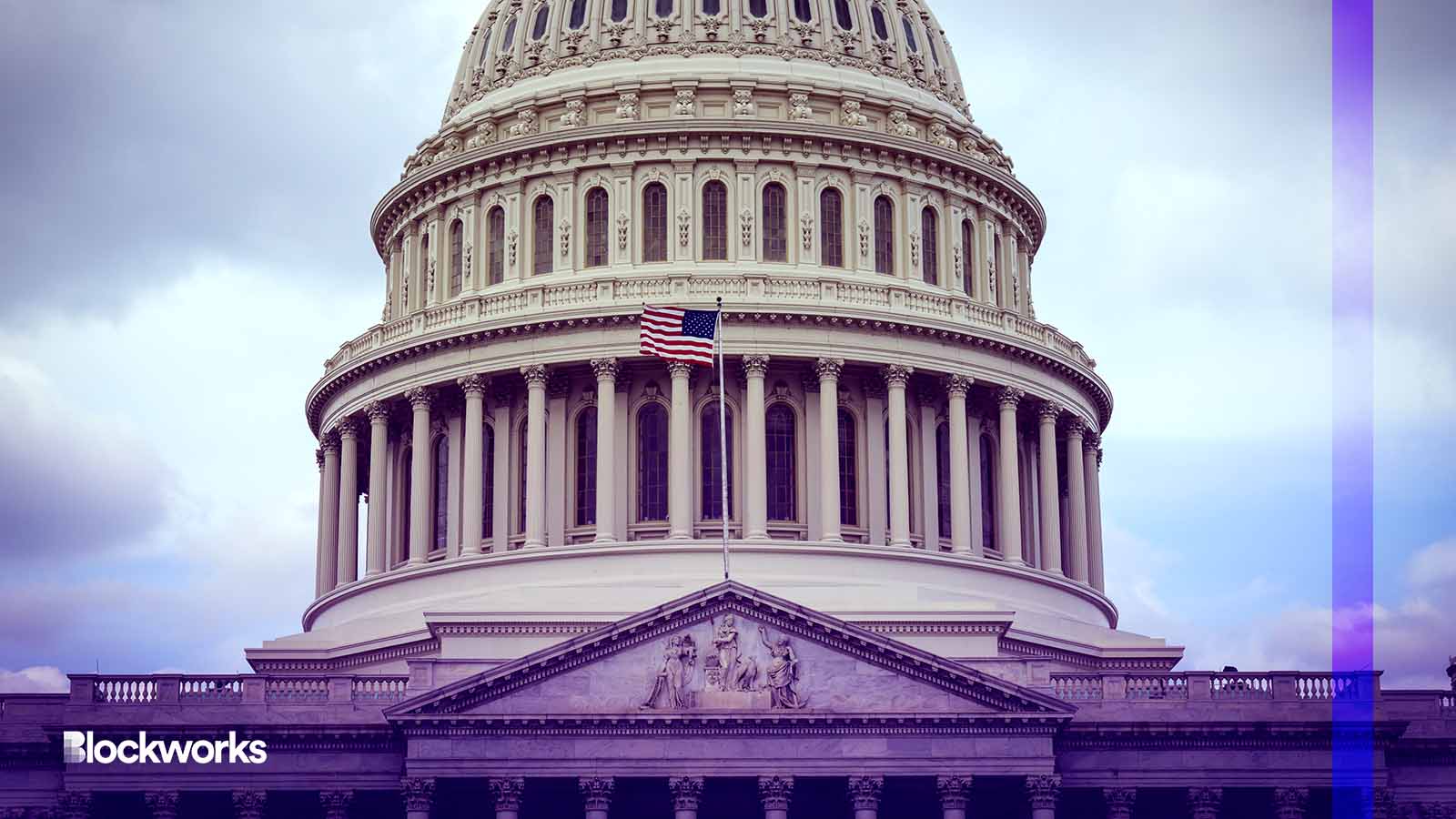House Republicans’ long-awaited crypto market structure bill is here
The bill focuses in part on the regulatory roles of the CFTC and the SEC in the crypto market, as well as classifications for digital assets

Brandon Bourdages/Shutterstock modified by Blockworks
A group of House Republicans have introduced a long-awaited bill that, if passed, would define the crypto oversight roles of the Commodity Futures Trading Commission and the Securities and Exchange Commission once and for all.
The proposed market structure law — the Financial Innovation and Technology for the 21st Century Act — establishes joint rulemaking powers between the SEC and CFTC. Notably, the bill grants the latter control over digital commodities markets, including exchanges and broker-dealers.
The legislation also clarifies how digital assets are classified, stating that the existence of an investment contract alone does not make a token a security. About 70% of all crypto tokens should be classified as commodities rather than securities, the co-sponsors wrote in a fact sheet published alongside the bill.
Co-sponsors include House Agriculture Committee Chair Glenn Thompson, R-Pa., Rep. French Hill, R-Ark., and Rep. Dusty Johnson, R-S.D. Hill leads the inaugural Subcommittee on Digital Assets, Financial Technology and Inclusion, and Johnson leads the Subcommittee on Commodity Markets, Digital Assets, and Rural Development.
Reps. Tom Emmer, R-Minn., and Warren Davidson, R-Ohio, — both of whom have been vocal crypto advocates thus far this session — also signed on as co-sponsors.
The bill’s introduction comes after lawmakers debated the discussion draft for months. The House Financial Services Committee hosted a hearing on the proposed law in early June, during which participants praised the bill’s aim to separate powers between the SEC and CFTC.
“Over the past several months, our teams solicited extensive feedback from stakeholder and market participants, and worked diligently to produce a legislative product that aims to close existing authority gaps, ensuring U.S. leadership in financial and technological innovation,” Thompson said in a statement Thursday.
The bill will likely face pushback from House Democrats, many of whom have argued that the SEC should have a larger role than the bill currently allocates.
“I did not anticipate that we would have such strong advocacy for the CFTC,” Rep. Maxine Waters, D-Cali., said during a June hearing on how to bring regulatory clarity to the industry.
Get the news in your inbox. Explore Blockworks newsletters:
- The Breakdown: Decoding crypto and the markets. Daily.
- 0xResearch: Alpha in your inbox. Think like an analyst.






